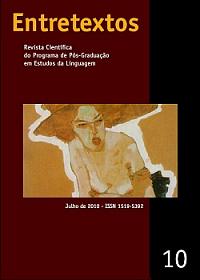The irony as argumentative strategy in text of critical politics of the internet
DOI:
https://doi.org/10.5433/1519-5392.2010v10n1p8Keywords:
Irony, Argumentative text, critical politicsAbstract
The language is considered by many studious a dynamic game between interlocutors and has a great power of persuasion. Used for people of different class and in different social sphere, it can be said that the language, by means of the argument, always molded the character of the society. It is also therefore that studious have the preoccupation in to analyze it in its dialogic character. The present study, with the objective to identify argumentative values inside the discourse, analyzed an ironic text removed of the electronic portal, Portal Nosso São Paulo, which publishes philosophical thoughts, critical politics, notice and data in general regarding the state of São Paulo. The analyzed text deals with an article which its author, Célio da Silva Franco, express his thoughts on the politicians discourses presented for the electoral announcement in TV of the candidates to the presidency of the Republic of Brazil, in the 2006 elections. For theoretical basement, it was resorted of the concepts of dialogism, heterogeneity and polifony, with bases mainly in Bakhtin and Authier-Revuz. It was evidenced in the analyzed text that the irony is an argumentative resource that demands of the reader an active participation in the process of negotiation and interpretation of the meaning. Of this form, the implicit one does not recover easily in the inversion of the statements, but in the contradiction of the argumentative values taken root to the communities.Downloads
References
BRAIT, Beth. Ironia em perspectiva polifônica. Campinas, SP: Editora da UNICAMP, 1996.
BRAIT, Beth; MELO, Rosineide de. Enunciado/enunciado concreto/enunciação. In: BRAIT, Beth (org.). Bakhtin: conceitos chaves. São Paulo: Contexto, 2005.
BEZERRA, Paulo. Polifonia. In: BRAIT, Beth. (org.). Bakhtin: conceitos chaves. São Paulo: Contexto, 2005.
CASTRO, Maria Lilia Dias de. A Dialogia e os efeitos de sentidos irônicos. In: BRAIT, Beth. (org.). Bakhtin, dialogismo e construção do sentido. Campinas, SP: Editora da UNICAMP, 1997.
DUCROT, Oswald. O dizer e o dito. Trad. Eduardo Guimarães. Campinas, SP: Pontes, 1987.
FRANCO, Célio. A ilha da fantasia chamada Brasil. São Paulo, 2006. Disponível em: http://www.nossosaopaulo.com.br/Reg_SP/Amar_Instruir/Ainst_PensSet2006.htm. Acesso em 25 fev. 2008.
GUIMARÃES, Eduardo. Os limites do sentido. São Paulo: Pontes, 3.ed., 2005.
MAINGUENEAU, Dominique. Novas tendências em Análise do Discurso. Trad. Freda Indursky. Campinas, 2.ed., 1993.
PASSETTI, Maria Célia Cortez. O discurso irônico: análise da argumentação irônica em textos opinativos da Folha de S. Paulo. 1995. Dissertação (Mestrado em Letras) - Universidade Estadual Paulista-UNESP, Assis/SP.
PASSETTI, Maria Célia Cortez. O discurso irônico em textos opinativos da Folha de S.Paulo. In: VASCONCELOS, Silvia Inês Coneglian Carrilho de. (org.). Os discursos jornalísticos: manchete, reportagem, classificados & artigo. Itajaí-SC, Maringá-PR: Univali, 1999. p.7-60.
SOBRAL, Adail. Ato/Atividade e Evento. In: BRAIT, Beth. (org.). Bakhtin: conceitos chaves. São Paulo: Contexto, 2005.
Downloads
How to Cite
Issue
Section
License
Entretextos adota a Licença Creative Commons Attribution 4.0 International, portanto, os direitos autorais relativos aos artigos publicados são do(s) autor (es).
Sob essa licença é possível: Compartilhar - copiar e redistribuir o material em qualquer suporte ou formato. Adaptar - remixar, transformar, e criar a partir do material, atribuindo o devido crédito e prover um link para a licença e indicar se mudanças foram feitas.




















